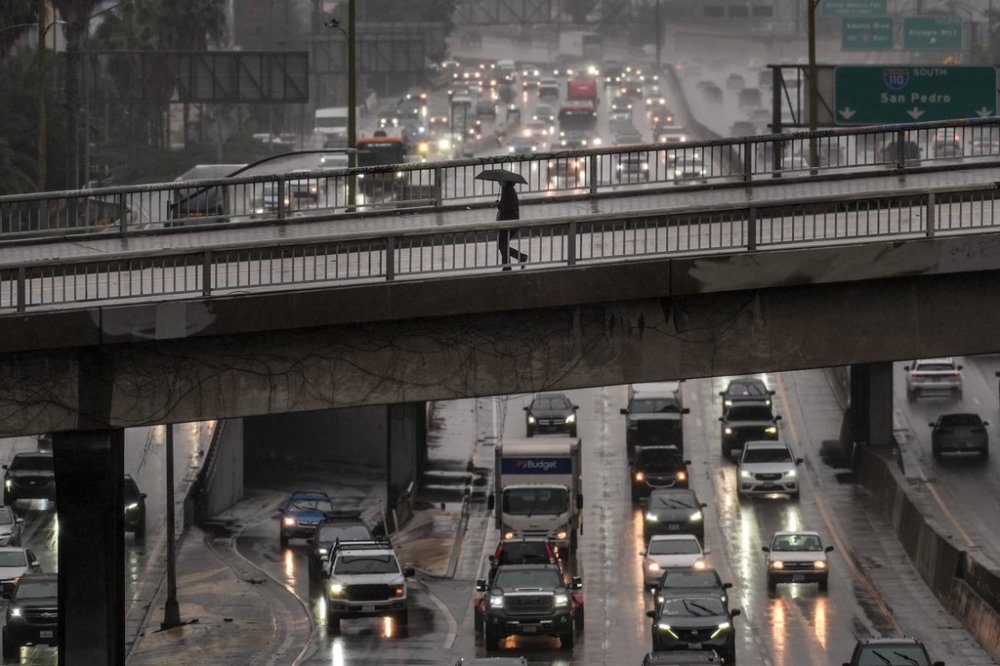Business groups ask Supreme Court to pause California climate reporting laws in emergency appeal
Advertisement
Read this article for free:
or
Already have an account? Log in here »
To continue reading, please subscribe:
Monthly Digital Subscription
$0 for the first 4 weeks*
- Enjoy unlimited reading on winnipegfreepress.com
- Read the E-Edition, our digital replica newspaper
- Access News Break, our award-winning app
- Play interactive puzzles
*No charge for 4 weeks then price increases to the regular rate of $19.00 plus GST every four weeks. Offer available to new and qualified returning subscribers only. Cancel any time.
Monthly Digital Subscription
$4.75/week*
- Enjoy unlimited reading on winnipegfreepress.com
- Read the E-Edition, our digital replica newspaper
- Access News Break, our award-winning app
- Play interactive puzzles
*Billed as $19 plus GST every four weeks. Cancel any time.
To continue reading, please subscribe:
Add Free Press access to your Brandon Sun subscription for only an additional
$1 for the first 4 weeks*
*Your next subscription payment will increase by $1.00 and you will be charged $16.99 plus GST for four weeks. After four weeks, your payment will increase to $23.99 plus GST every four weeks.
Read unlimited articles for free today:
or
Already have an account? Log in here »
WASHINGTON (AP) — The U.S. Chamber of Commerce asked the Supreme Court on Friday to pause new California laws expected to require thousands of companies to report emissions and climate-risk information.
The laws are the most sweeping of their kind in the nation, and a collection of business groups argued in an emergency appeal that they violate free-speech rights.
The measures were signed by Democratic Gov. Gavin Newsom in 2023, and reporting requirements are expected to start early next year.

Lower courts have so far refused to block the laws, which the state says will increase transparency and encourage companies to assess how they can cut their emissions.
The Chamber of Commerce asked the justices to put the laws on hold while lawsuits continue to play out.
One requires businesses that make more than $1 billion a year and operate in California to annually report their direct and indirect carbon emissions, beginning in 2026 and 2027, respectively.
That includes planet-warming pollution from burning fossil fuels directly, as well as releases from activities such as delivering products from warehouses to stores and employee business travel. The Chamber of Commerce estimates it will affect about 5,000 companies, though state air regulators say it will apply to roughly 2,600.
The other law requires companies that make more than $500,000 a year to biennially disclose how climate change could hurt them financially. The state Air Resources Board estimates more than 4,100 companies will have to comply.
“Without this Court’s immediate intervention, California’s unconstitutional efforts to slant public debate through compelled speech will take effect and inflict irreparable harm on thousands of companies across the country,” the companies argued.
Companies that fail to publish could be subject to civil penalties. ExxonMobil also challenged the laws in a lawsuit filed last month.
The state has argued that the laws don’t violate the First Amendment because commercial speech isn’t protected the same way under the Constitution.
In 2023, Newsom called the emissions-disclosure law an important policy and of the state’s “bold responses to the climate crisis, turning information transparency into climate action.” The environmental group Ceres has said the information will help people decide whether to support the businesses.
The U.S. Securities and Exchange Commission approved a rule last year requiring some public companies to report their greenhouse gas emissions and climate risks, but the agency paused the regulation amid litigation.
The conservative-majority Supreme Court has cast a skeptical eye on some environmental regulations in recent years, including a landmark decision that limited the Environmental Protection Agency’s authority to regulate carbon dioxide emissions from power plants in 2022, and another that halted the agency’s air-pollution-fighting “good neighbor” rule.
___
Austin reported from Sacramento.

